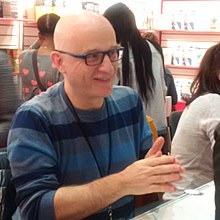
The Université du Québec à Montréal, is a French-language public research university based in Montreal, Quebec, Canada. It is the largest constituent element of the Université du Québec system.

Jacques Parizeau was a Canadian politician and Québécois economist who was a noted Quebec sovereigntist and the 26th premier of Quebec from September 26, 1994, to January 29, 1996.
The Traitor and the Jew, a history by Esther Delisle, was published in French in 1992. She documented the history of antisemitism and support of fascism among Quebec nationalists and intellectuals during the 1930s and '40s.
Anti-Quebec sentiment is a form of prejudice which is expressed toward the government, culture, and/or the francophone people of Quebec. This prejudice must be distinguished from legitimate criticism of Quebec society or the Government of Quebec, though the question of what qualifies as legitimate criticism and mere prejudice is itself controversial. Some critics argue that allegations of Quebec bashing are sometimes used to deflect legitimate criticism of Quebec society, government, or public policies.
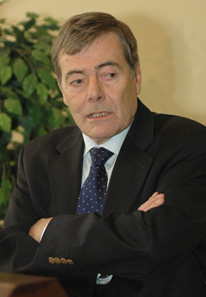
Michel Vastel was a Quebec journalist and columnist for Le Journal de Montréal and other medias. He was born in Saint-Pierre-de-Cormeilles, Eure, France and immigrated to Canada in 1970.

Philippe Couillard is a Canadian business advisor and former neurosurgeon, university professor and politician who served as 31st premier of Quebec from 2014 to 2018. Between 2003 and 2008, he was Quebec's Minister of Health and Social Services in Jean Charest's Liberal government and was MNA for Mont-Royal until he resigned in 2008. In the 2014 election, Couillard moved to the riding of Roberval, where he resides. He was the leader of the Quebec Liberal Party from 2013 to 2018. He resigned as Liberal leader and MNA on October 4, 2018.
The Montreal Economic Institute (MEI) is a non-profit research organization based in Montreal, Quebec, Canada. It aims at promoting economic liberalism through economic education of the general public and what it regards as efficient public policies in Quebec and Canada through studies and conferences. Its research areas include different topics such as health care, education, taxation, labour, agriculture and the environment. Its studies are often mentioned in the media.

Steven Guilbeault is a Canadian politician and activist who has served as Minister of Environment and Climate Change since October 26, 2021. A member of the Liberal Party, Guilbeault has sat as a member of Parliament (MP) since the 2019 federal election, representing the Montreal riding of Laurier–Sainte-Marie in the House of Commons. Guilbeault was previously the minister of Canadian heritage from 2019 to 2021.

Gabriel Nadeau-Dubois is a politician from Quebec, Canada. He is the co-spokesperson of the left-wing party Québec solidaire since May 21, 2017, and was elected as a member of the provincial legislative assembly on May 29, 2017. Before his arrival in active politics, he was well known for his role during the 2012 Quebec student protests as co-spokesperson of the Coalition large de l'Association pour une solidarité syndicale étudiante (CLASSE), a broad coalition of student associations opposed to the $1,625 tuition hike introduced by Jean Charest's government. He quit that position on August 9, 2012.

Stanley Vollant is an Innu surgeon from the aboriginal community of Pessamit, which is located by the course of the St-Lawrence River, in the Côte-Nord region of Quebec.

Olivier Bernard, known as the Pharmafist, is a Canadian science communicator who uses cartoons to counter pseudo-scientific myths. He writes the Pharmafist blog, the Pharmachien books and produces the television program Les aventures du pharmachien, denouncing ineffective or dangerous treatments.
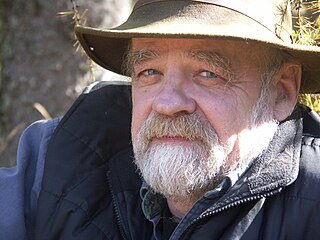
Serge Bouchard was a Canadian anthropologist, writer, and media personality. Bouchard studied contemporary life in Canada from an anthropological perspective; his subjects ranged from Innu hunters to Quebec truck drivers. Through his frequent appearances in the media, Bouchard's commentary reached both a popular and scholarly audience. He received the Prix Gérard-Morrisset in 2015 and a Governor-General's Award in 2017.
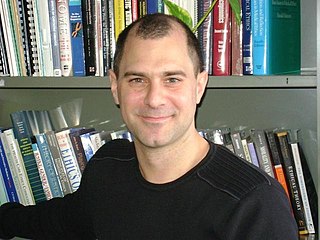
Bryn Williams-Jones is a Canadian bioethicist, professor and director of the Department of Social and Preventive Medicine at the School of Public Health, Université de Montréal. He is co-founder and editor-in-chief of the Canadian Journal of Bioethics/Revue canadienne de bioéthique, the first open access bilingual bioethics journal in Canada, and co-director of the Ethics branch of the International Observatory on the Social Impact of AI and Digital Technology (OBVIA). Williams-Jones is a member of the Centre for Research in Public Health (CReSP), the Centre for Ethics Research (CRÉ), the Institute for Applied Ethics (IDÉA) of the Université Laval, and fellow of The Hastings Center.
Simon-Pierre Savard-Tremblay is a Canadian politician, who was elected to the House of Commons of Canada in the 2019 election. Savard-Tremblay represents the electoral district of Saint-Hyacinthe—Bagot as a member of the Bloc Québécois.
The COVID-19 pandemic in Montreal is part of an ongoing global pandemic of coronavirus disease 2019 (COVID-19), a novel infectious disease caused by severe acute respiratory syndrome coronavirus 2 (SARS-CoV-2). Until April 2021, Montreal was the worst affected health region in Canada. Despite being surpassed by Toronto in total number of cases, Montreal still has the highest total death count and the highest death rate in Canada, with the death rate from COVID-19 being two times higher on the island of Montreal than in the city of Toronto due in large part to substantial outbreaks in long-term care homes. Montreal is Canada's second most populous city, the largest city in Quebec, and the eighth most populous city in North America.
The following is a timeline of the COVID-19 pandemic in the province of Quebec.
The COVID-19 vaccination campaign in Quebec is an ongoing provincial effort to distribute and administer vaccines against COVID-19.
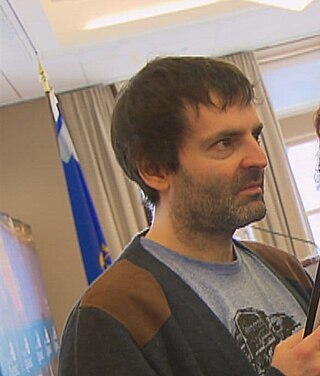
François Blais was a Canadian writer from Quebec who received the 2020 Governor General's Award for French-language children's literature for his novel Lac Adélard.

Caroline Quach-Thanh is a Canadian pediatric microbiologist, epidemiologist and infectious diseases specialist. She is a professor in the Université de Montréal Faculty of Medicine and Medical Lead in the Infection Prevention and Control Unit at CHU Sainte-Justine. She served as the Chair of the National Advisory Committee on Immunization (NACI) before and during the COVID-19 pandemic, and oversaw the approval process of COVID-19 vaccines in Canada.
Pierre-Paul Yale is a psychiatrist and vice-president of the Association des médecins psychiatres du Québec. He was the expert member representing the association on a committee on mental health for the Premier of Quebec, Philippe Couillard, involving the Ministry of Health and Social Services. He was professor in psychiatry at Sherbrooke University, and published various works on psychiatry.

